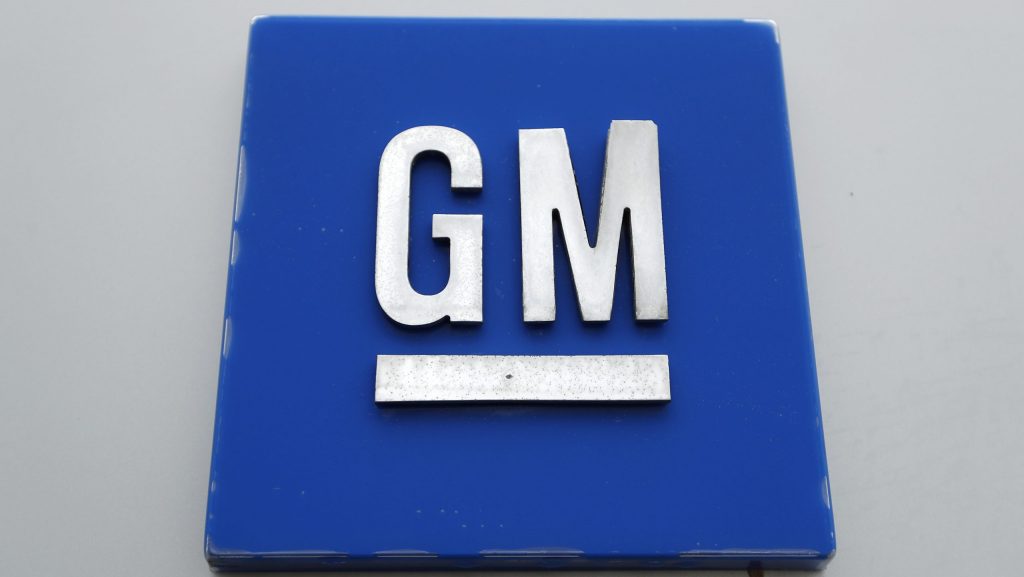Unifor autoworkers ratify agreement with GM as UAW strikes continue
The new three-year labor agreement covers more than 4,300 GM workers in Canada and follows the pattern agreement first negotiated by Unifor with Ford.

FILE - A logo of the General Motors is seen in Hamtramck, Mich., on Jan. 27, 2020. Photo credit: Paul Sancya, AP Photo
Canadian autoworkers represented by Unifor voted overwhelmingly on Sunday to ratify a new deal with General Motors.
The three-year collective agreement covers more than 4,300 workers at the Oshawa Assembly Plant, St. Catharines Powertrain Plant and Woodstock Parts Distribution Centre in Ontario, and follows the pattern agreement first negotiated by Unifor with Ford of Canada.
Union members voted to ratify the deal by 80.5%.
“This agreement reflects true collective bargaining,” said Unifor National President Lana Payne in a news release. “Our goal was to bring more fairness and equity to auto workplaces and to lift everyone up. We did that.”
The new contract, which expires Sept. 20, 2026, cuts the wage progression grid from eight to four years, dramatically reducing the time it takes workers to reach the top rate of pay. The change will be particularly significant for members at the Oshawa Assembly Plant, Unifor says, where the majority of workers were hired since the plant reopened in 2021.
Members with one and two years seniority will see their hourly pay increase by between 63% to 73% over the life of the agreement, while wages for top of scale workers will increase by nearly 20% for production workers and 25% for Skilled Trades. The pattern also includes the reinstatement of a Cost of Living Allowance for the first time since 2008 to help protect workers wages from rising inflation, and the conversion of temporary part-time workers to permanent full-time positions at the three facilities over the life of the agreement.
“With this contract in place, hundreds of part-time workers will be converted to full-time status immediately and the abuse of the temporary worker program will come to an end,” said Unifor GM Master Bargaining Chair Jason Gale in a statement.
Unifor is Canada’s largest union in the private sector, representing 315,000 workers across various industries.
UAW strike enters its second month
Meanwhile, it’s been over a month since the United Auto Workers went on strike against all of Detroit’s Big Three car companies, as significant roadblocks remain in negotiations over a new national contract.
In the union’s latest expansion of the strike, workers walked off the job last week at Ford Motor Company’s Kentucky Truck Plant — the company’s largest and most profitable plant. UAW President Shawn Fain says the strikes will keep expanding if companies continue to low-ball workers’ pay while the automakers earn record profits — though Ford officials say the company has offered all it can afford to.
“Unless we start to see real gains in our contracts that match the gains we’ve seen on Wall Street, then I predict there’s gonna be a lot more strikes on the horizon,” he said.
Still, Fain says the union’s strategy of targeting only certain facilities is paying-off, as automakers have offered more wage increases than workers’ combined pay raises over the past 15 years.
“Taking out Kentucky Truck sent a very clear message not only to Ford but to GM and Stellantis as well,” Fain said. “Don’t you dare slow walk us or low ball us. We will take out whatever plants they force us to.”
Ford has made huge investments in electric battery plants that are not covered by the union contract — something union leaders would like to change. By contrast, General Motors has agreed to include workers at its electric battery facilities in any new union contract, the UAW reports.
